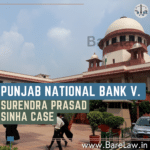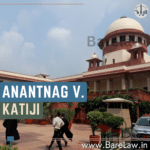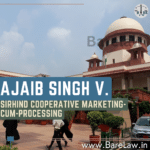
Introduction : Mubarak Ali v. State of Bombay
There have been many landmark judgments and rulings that have shaped the legal systems around any country. Mubarak Ali v. State of Bombay is one particular case that has attracted much attention and analysis over the years. The objective of this article is to comprehensively understand this case and its significance.
Background:
The case of Mubarak Ali v. State of Bombay revolves around specific legal provisions and their interpretation. However, while the details of what led to it are intricate, one must grasp the legal issues raised and how they were ruled upon.
Key Issues:
- Legal Provisions in Question: It was primarily a lawsuit on parts of legislation that need interpretation. It was not clear about these provisions or how they applied to the events at hand.
Rights and Liberties: As most landmark decisions do, also addressed Individual rights versus collective good; How far could society go when infringing individuals’ freedom?
Jurisdictional Concerns: Another salient issue handled by the Court was territorial jurisdiction for law provisions across different States or districts..
Judgment:
The verdict by court came after presentations from both sides had been listened to. The ruling went ahead to clarify on how these legislations should be interpreted with future cases in mind – offering guidance on such similar circumstances. In addition, it emphasized more widely on individual rights vis-à-vis state powers and what judiciary can do regarding interpretation of laws.
Significance:
The case of Mubarak Ali v. State of Bombay is significant for several reasons:
- Legal Precedent: The decision made served as a benchmark for other related instances ensuring better understanding
- Protection of Individual Rights: It showed that individual’s right should not be infringed upon while exercising state powers within boundaries set by law.
- Role of Judiciary: Additionally, it further confirmed that judiciary is pivotal as per interpretation in law hence justice delivery based on charter’s tenets.
Conclusion:
Mubarak Ali v. State of Bombay epitomizes the changing nature of the legal system; It is a lesson for constant judicial surveillance and habit of reinforcing or reinterpreting laws to keep pace with time as well as societal demands. Reflecting on it reminds us about enduring principles of justice, equity, and rule of law that underpin any democracy.





